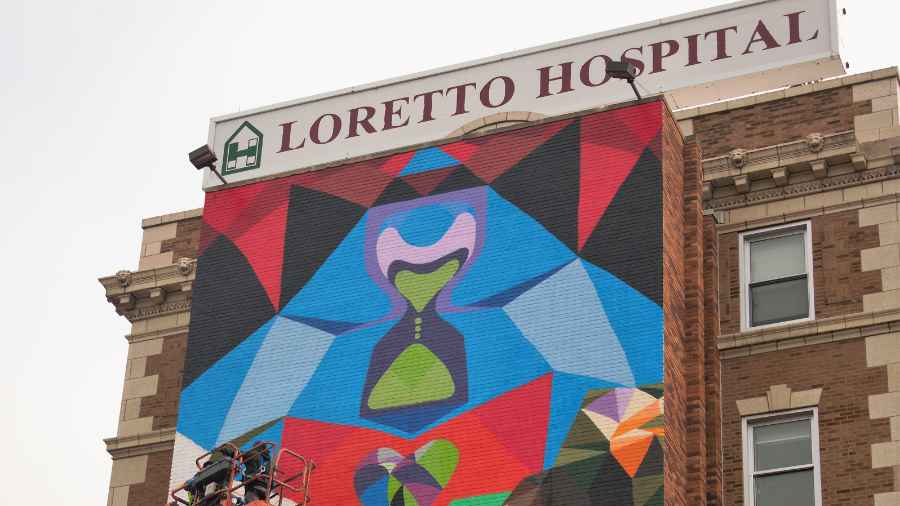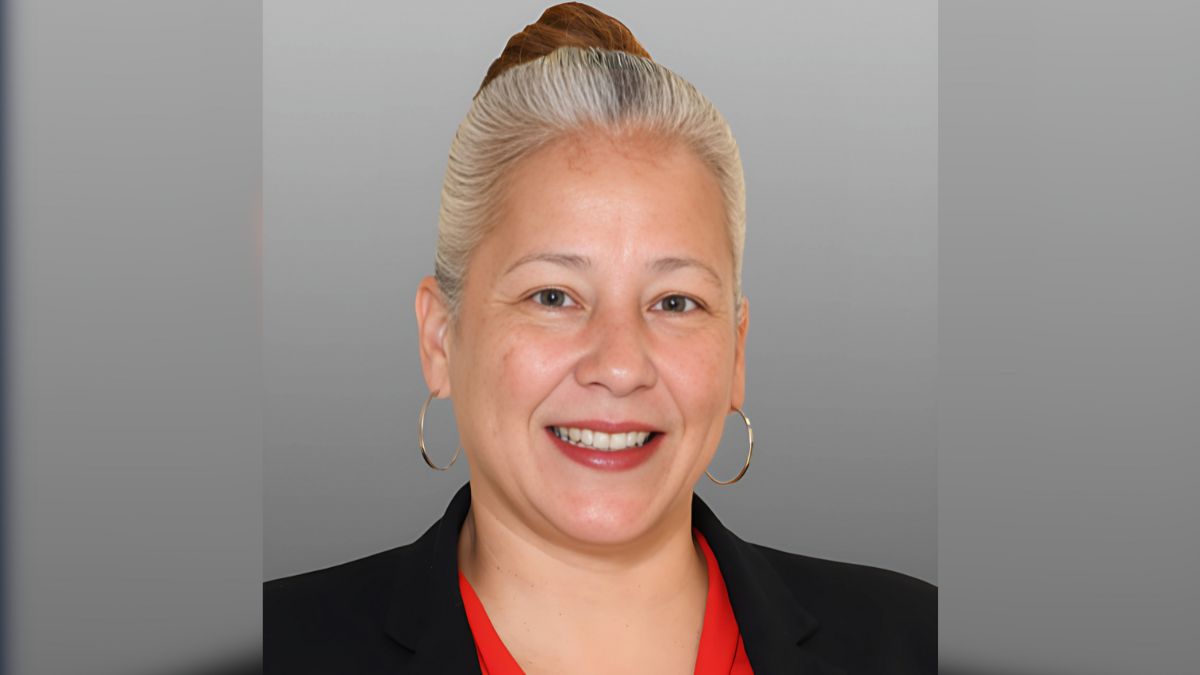Before Tesa Anewishki became the first African and Native-American CEO of Loretto Hospital, she received an early holiday lesson in her youth about the importance of giving and selflessness.
It came via a bearded man — not the one you’re thinking of — on a downtown Chicago street when she was around 13. This man had a garbage bag and icicles in his beard.
So, Anewishki’s mother pulled over, got out of the car, and disappeared into a department store.
An hour later, when her mother returned, there were no shopping bags in her hands. But when the young girl noticed that same man on the street, he was wearing a red parka coat, fully clothed, hat, gloves, coat, boots, everything,” Anewishki recalled.
That lesson, along with her lived experience, propels Anewishki to lead Loretto Hospital. In this safety-net institution, over 70% of its patients receive Medicaid, and many come to its doors without health insurance.
When you add in Medicare, self-pay and charity care patients along with those Medicaid recipients, it climbs to about 90%.
Since Spring 2022, Anewishki has been helping to propel the beleaguered West Side Medical Center in a different direction after it had undergone a strike and a former employee was charged by the U.S. Department of Justice for embezzling $500,000 from the hospital.
As Anewishki helps to shape the present and future of the 101-year-old hospital, she is being intentional about addressing the health disparities that tend to afflict the predominantly Black and Brown patients it services. Those issues include food insecurity, diabetes and providing patients with culturally responsive care.
“A lot of the social drivers of health are borne out of political determinants of health,” she said. “We can’t really talk about really making meaningful change in those disparities and talk about closing services in the same sentence.”
[perfectpullquote align=”full” bordertop=”false” cite=”” link=”” color=”” class=”” size=””]So, it can’t be money over mission or power over people,”said Anewishki. “The work has to be front and center at all times, and I am a believer that the resources will come.”[/perfectpullquote]
Learning From Experience
A primary driver of Anewishki’s passion for transforming, as she says, the corner of Central and Harrison, the intersection where Loretto sits, is because of her own experience growing up on the South Side.
She grew up in Calumet Heights, or “West Pill Hill,” on the South Side, where she enjoyed a wonderful childhood.
Thanks to her family, she learned the concept of charity early.
“We always heard stories about my grandparents when my mother was growing up, and if someone lost their job during Christmas or the holidays, they went shopping and dropped groceries off to individuals,” she said.
Her mother, Melanie G. Anewishki, who helped out that man on the street, is also the executive director and founder of Featherfist, one of the largest homeless outreach agencies in the city.
But, Anewishki recalls another experience that continues to inform her work as the Loretto Hospital CEO.
“Part of my passion in terms of the work I do is I understand what it means to be—I don’t want to say disenfranchised—but when you need to rely on the public system, which I did when my daughter was young,” she said.
Anewishki said she worked three part-time jobs and needed healthcare for herself and her daughter. Through that experience, she was exposed to the hardships that uninsured and underinsured people often face when trying to get care.
“And the experience I had at that moment really has stayed with me over 30 years later,” she said.
A Visionary Path to Leadership
Nevertheless, Anewishki eventually earned her college degrees at Roosevelt University. She started her career in advertising and brand management with American Urban Radio Networks and Johnson Publishing Company, but she found herself drawn to the family business because she wanted to help others.
In 2010, she started at Loretto and eventually worked in various roles, including director of marketing and foundation administrator, chief development officer, and executive director.
Through her background in advertising and brand management, she saw the importance of engaging with and responding to the needs of the community, especially those who rely on the services that Loretto Hospital provides.
A Commitment to Community Wellness
Since becoming Loretto’s CEO, she has worked to implement a program that addresses health disparities, promotes community wellness and ensures equitable access to high-quality healthcare. These initiatives are aimed at addressing health disparities and fostering holistic well-being. Among those initiatives are the following:
- Community Cupboard: A program that provides single-serve meals to those in need, addressing food insecurity and promoting nutrition within the community. There are also plans for a hospital-based free grocery store to combat hunger and support healthy lifestyles.
- Physician Fellowship Program: Recognizing the importance of diversity in healthcare, Anewishki is a proponent of a physician fellowship program to recruit and retain diverse medical practitioners. There is significant evidence that when Black and Brown patients receive treatment from doctors who look like them, their health outcomes improve.
- Specialized Care Centers: Anewishki’s vision also extends to cultivating specialized care centers within Loretto, including a Diabetic Total Lifestyle Center and a Women’s Clinic, the latter to address maternal health, especially among Black women.
- Advocacy for Resource Access: Anewishki also emphasizes eliminating barriers to funding and resources for healthcare providers, ensuring that organizations like Loretto can continue their vital work without hindrance.
Looking Towards the Future

As Anewishi looks toward the future, she envisions Loretto as a beacon of innovation, collaboration, and compassionate care. She plans to create a wellness village, forge strategic partnerships with local organizations already working to address health disparities on Chicago’s West Side and leverage technology to enhance patient experiences.
When asked to elaborate on her vision for Loretto, Anewishki expressed what she expects the corner of Central and Harrison will look like in the next several years.
“When you drive past that expressway in two years, you’ll see one building up. In five years, you’re going to see another building, and in seven years, you’ll see another building because that’s what the community deserves,” she said.
“It’s long overdue, and I’m not afraid to ask.”



